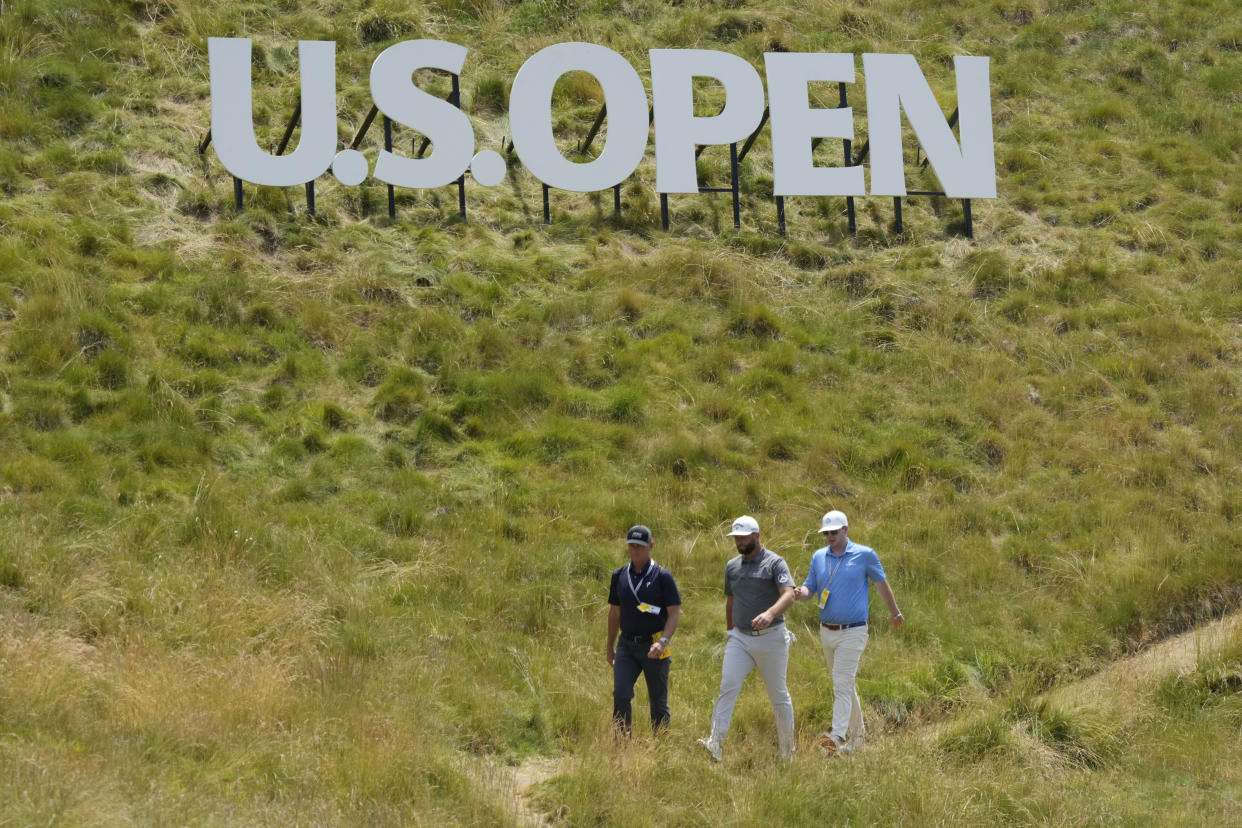Legends made at the U.S. Open

Paid for by Jeep
No golf tournament poses a more difficult challenge than the U.S. Open. No tournament creates more historic moments or inspires more iconic performances. From the dominance of Tiger Woods to the grace of Arnold Palmer, the will of Ben Hogan to the drive of Jack Nicklaus, the champions of the U.S. Open are legends, one and all:

Francis Ouimet, The Country Club (1913): A local kid who grows up across the street from a golf course grows up to win the U.S. Open, in a three-way playoff, as an amateur, on that same golf course? It sounds like the plot of a movie — and eventually it was — but first, it was the real-life story of Francis Ouimet. At just 20 years old, he defeated the game’s greatest, forever establishing golf as a sport where, with the right timing and the right breaks at the right moment, anyone could win the game’s greatest title.
Ben Hogan, Merion (1950): Like many of the other victories on this list, Hogan won in an 18-hole playoff. But the route to this win was unlike any other in golf history. Barely a year and a half after a car crash so devastating doctors weren’t sure he would even walk again, Hogan managed to claw his way into a three-way playoff and an eventual victory. The club that got him there? The famous 1-iron from the fairway on Sunday to set up a playoff-forcing par, one of golf’s most memorable individual shots.
Arnold Palmer, Cherry Hills (1960): Coming into the final round, Palmer was seven strokes off the lead, with Hogan and Nicklaus, among others, ahead of him. Palmer birdied six of the first seven holes, outlasted both the venerable Hogan and the youthful Nicklaus, and celebrated the win by throwing his visor high in the air in one of golf’s most memorable celebrations.
Jack Nicklaus, Oakmont (1962): Nicklaus took on Arnie’s Army … and won. In 1962, Nicklaus was yet to win even a single tournament, and faced the unpleasant challenge of playing with the most popular player in the world and his extraordinarily vocal gallery. Four strokes behind Palmer’s lead on the ninth tee on Sunday, Nicklaus mounted a charge to force an 18-hole playoff, and would go on to win the tournament by three. Arnie’s Army went away disappointed, but the legendary career of Nicklaus had begun.
Johnny Miller, Oakmont (1973): Simply the finest individual performance in U.S. Open history. On a brutally tough Sunday at Oakmont, arguably America's toughest golf course, Miller crafted an immaculate 63 to triumph over a field that included Palmer and Nicklaus.
Tom Watson, Pebble Beach (1982): As Palmer had Nicklaus nipping at his heels and his legacy, Nicklaus had Tom Watson, who challenged the Golden Bear throughout the ‘70s and ‘80s. Pebble Beach in 1982 marked perhaps Watson’s greatest individual triumph, a hole-out from the fringe on 17 on Sunday that clinched the victory and history.
Payne Stewart, Pinehurst (1999): The most heartwarming and, later, most heartbreaking of all U.S. Opens. Stewart outlasted Phil Mickelson to claim a final-hole victory, and embraced Mickelson, who was one day away from becoming a father. Just a few months later, Stewart died in a plane crash.
Tiger Woods, Pebble Beach (2000): The definition of domination. Woods won by an astounding 15 strokes, the only player under par at a blustery Pebble. The scope of his achievement was breathtaking; no one else before or since has produced such complete mastery of both the course and the field.
Tiger Woods, Torrey Pines (2008): Simply one of the greatest gutsy performances in golf history. Playing on both a ruptured ACL and a fractured leg, Woods gutted out two separate miracles. Needing a birdie on the 18th to stay alive, he did it … twice. This would be his final major win for more than a decade, and remains one of the signature moments of his legendary career.
